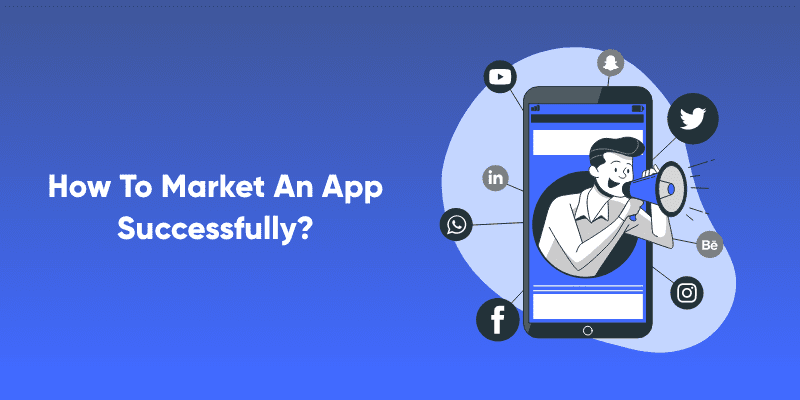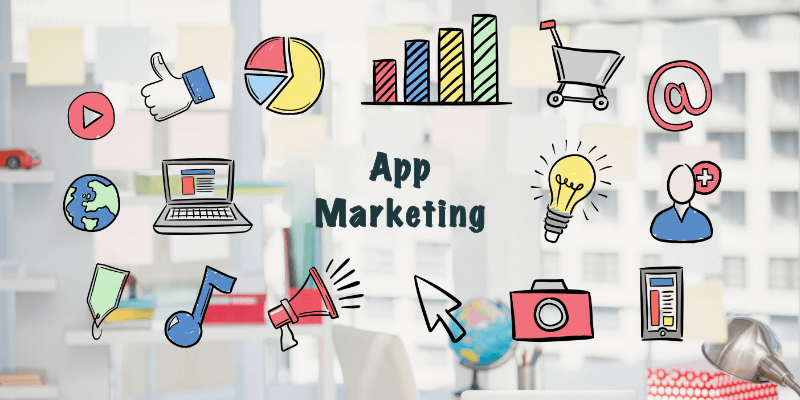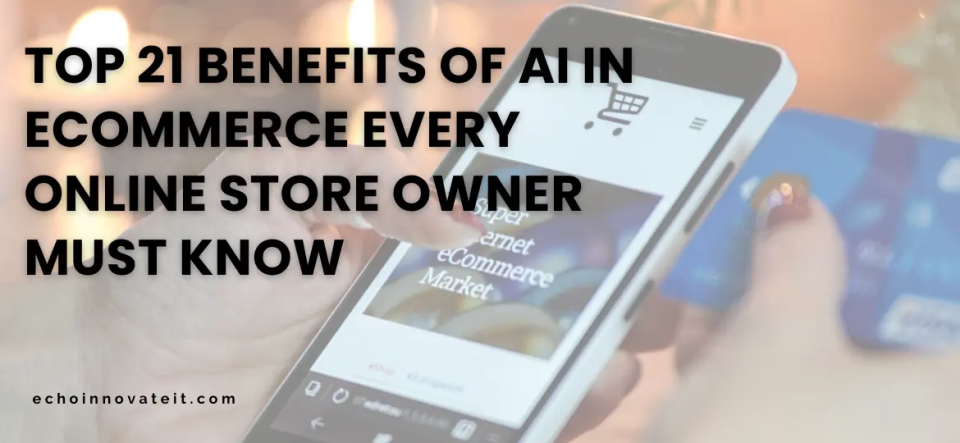There’s nothing worse than putting in months or even years of hard work into developing an exciting and intuitive app, finally launching it on the app store, and then instead of receiving an overwhelming amount of downloads and reviews – crickets. Without proper app marketing strategies, chances are your app might fail to make its place in the market.
This happens all too often because many people believe that a great app idea with the right functionality and UI is enough to land millions of downloads. They fail to account for the importance of proper pre-launch app marketing.
That is, no one knew you were building something amazing, and so, no one is excited that it’s finally available for download. So, you need to make sure that your app gains enough attention and traction before it’s available on the store so as to get a flying start when it actually launches.
Here are six of the best pre-launch app marketing strategies you must implement for a successful launch:
Why Do Companies Need To Think OF Marketing Their Mobile App?

When your app launches you will want to know how many people downloaded your app. Thus, it is important to have app marketing strategies.
Along with the budget for the development of applications a company must focus on marketing. No company should put all its funds into creating an application and then blindly expect that users will find it.
A significant marketing budget is crucial for the success of your mobile app.
The Android app store is now home to 3.8 million applications. Thus, developers must be careful about how they market their products to compete with the best applications.
Your budget may evolve over time. Marketing will have to change depending on user responses to certain campaigns and the application itself.
Testing different marketing channels and processes can lead to a deeper and more complete understanding of their potential audience.
Marketing must also be highly targeted to your target audience.
Focusing on a relevant audience provides a greater chance of success as you can appeal to a specific set of needs rather than trying to please everyone at the same time.
From conception to launch, it is important to allocate sufficient funds for effective marketing campaign mobile applications.
How To Market An App Successfully?

Even if you are an experienced marketer, it is important to note that application marketing is a whole new ball game with different players and different rules. A common question marketers face is how to market their applications. Therefore, a new marketing approach is required.
Some of the unique challenges facing vendors entering the field of the mobile application are unfamiliar channels, orientation problems, understanding of downloads compared to users, app store rankings, and more.
Thus, here arises the question to dedicated app developers about how you can successfully market your app? Business cards, app reviews, and press kits can help you with it.
There are various common strategies that can be applied while designing your marketing strategy. However, strategy differs from app to app.
Some apps need more marketing than others whereas there are some apps that need very less marketing. One should always keep in mind that marketing your app is as essential as developing your app.
To Say Mobile Apps Are Famous Is An Understatement.
89 percent of media time is spent by men and ladies on mobile applications. Thus user acquisition of mobile apps is much more.
In the event that from now has a mobile application strategy established, it can complement itself to decide on a decent option.
A gesture of greeting is admissible, but not pop the champagne yet. A reality check is in order. There are not a lot of applications used. In fact, the rate of disappointment for applications is high.
While there are plenty of reasons why even large applications neglect to forward ROI, one of the main reasons is insufficient marketing.
Yes, in the hyper-aggressive universe of mobile apps, you must heat a mobile app marketing technique into your mobile app development process.
The chances of your application being successful without great marketing backup are very less.
In determining the success of the apps in this competitive mobile world, mobile app marketing plays a crucial role.
You’ve to spend time and money developing a mobile app and for sure that you’ve designed the best application for your users if you leave out marketing from your b-plan then the chances of your app even getting visibility is dim.
So, to celebrate the success of your application, consider these fundamentals for a great marketing strategy. The keyword here is “great.”
Also Read:
1. Dedicate All The Marketing Resources That Your App Requires

Often, sellers underestimate mobile advertising. They devote only a small percentage of their marketing budget (sometimes less than one percent) to this tactic.
However, in an ‘age mobile,’ applications are a powerful marketing tool, and therefore require a greater allocation of marketing resources. Studies show that 80% of consumers want to receive location-based alerts on their mobile phones. It just makes sense to invest in geo-fencing and promote marketing strategies notification because it’s what consumers want.
According to the study by the Mobile Marketing Association in marketing effectiveness in mobile applications, we should be spending more, much as 7-9% (depending on the overall share of applications), our marketing budgets on mobile.
Once you’ve restructured the marketing budget to give your mobile applications because of its resources, you need to plan how that budget will be used.
Ads and promotions for your application need not only to be creative and attractive to consumers but also have to be permanent. Without planning your budget accordingly, you could be losing momentum at the time of the year the final push occurs.
Your goal should be to maintain the visibility of your application in key markets throughout the year.
For example, you could push a little more than your budget around major holiday spending to boost the visibility and ensure that consumers are seeing their application when you need to most.
2. Do Not Go For Too Many Directions
As much as all companies are fighting for space application and supremacy, individual departments may be doing the same.
The larger the organization and the separate departments you have, the greater the number of people who feel their mobile application (and its marketing strategy) is its territory.
Instead of having internal disputes over property lines, uniting these different actors together in one team is a good idea. This team should only focus on the target audience.
This will not only appease those who feel you must have something to say or control applications marketing strategies but will end up making these more successful strategies.
Aligning the objectives of all these different departments may not be easy, but through continuous communication and routine meetings with team members, who will have a better chance to hit all these different objectives and minimize power struggles it will be achievable.
In addition, you will have more hands to work and creative input available in the planning and execution of marketing campaigns applications.
3. Market The Experience And Not The App
In the past, when companies made applications in order to have an application for your customers to use, which was more acceptable to commercialize the application itself.
That is no longer true because since it is not trying to sell the public application itself. Potential customers will definitely look for the experience that the app provides.
Instead companies today are selling the experience and not the application only. And, more importantly, how that experience is unique and different and superior to any other experience you have previously had on the mobile.
This is an old concept in every aspect. Consumers today are looking for the simplest experiences offered by brands.
In fact, 86% of consumers are more likely to buy when they are not overwhelmed with confusing information.
Keep this in mind when you are writing your descriptions of the stores. Market how the application will simplify the lives of users, not every little thing that the application can do.
Marketing strategy experience rather than the application has caused the customer experience. It becomes a lasting problem facing companies across nearly all industries.
Do not market your application only – it is simply not enough. You have to focus on the experiences that are only possible with your application.
Deal with these 3 pre-requirements and you’ll have a fruitful mobile app marketing strategy staring you in the face and your application will convey the profits you are searching for.
Mobile App Marketing Strategies In 2023
1. Get Pre-Launch Feedback
In the early stages when you have a minimum viable product (MVP) ready, you can seek out real app users who can provide detailed feedback, and eventually, when the app launches, these people can become your app’s biggest supporters and word-of-mouth champions.
Early adopters can be anyone from your ex-colleagues to family and friends. The aim here is to gain as much objective feedback as possible.
Furthermore, put out a call for beta testers. These testers can provide you with new feature ideas and help in eliminating unnecessary features that bloat your app.
You just need to go on Preapps and fill out all information about your mobile app.
They also serve as a resource for further audience research. Besides, the allure of a closed beta can create excitement around your app, building interest in your target communities, and rewarding those who choose to opt-in as a beta tester.
2. Build Buzz on Social Media
Leveraging social media for pre-launch app marketing is an absolute must as it is a highly effective way to reach an enormous audience of potential users. So, months before the actual launch of the application, you must create social media profiles for branding your app. Make sure to choose and focus on the right social media channels – don’t try to create a presence everywhere.
For Beta Testers Go To Preapps
- For instance, if you’re creating a fitness app, Facebook and Instagram are perfect for you.
- If it’s a B2B app or an app for freelancers/professionals, LinkedIn and Twitter would be your best bet.
- You can analyze where your competitors are thriving and build your brand’s buzz on those channels by engaging with those audiences and niche communities.
- Focus on consistently creating exciting content for your app’s social handles and engaging with the audience by sparking discussions.
Forums and Q&A Sites
- Plus, forums and Q&A sites like Reddit and Quora have strong and active niche communities where you can get invaluable feedback to improve your app before launching.
- And if you have some budget for ads, social media platforms are amazing for targeted paid advertising to reach your exact target audience demographics and get them to click through to your landing page.
3. Market Your App Creating a Landing Page
Don’t underestimate the power of a killer landing page with strong visuals and copy. Essentially, your pre-launch landing page is just a web page that turns strangers into potential users by collecting their email addresses. It doesn’t have to be a full-fledged website with multiple pages.
Needless to say, your landing page needs to be impressive with compelling visuals and copy in order to motivate people to sign up.
- It should include high-resolution screenshots of the app.
- Exciting benefits listed clearly.
- Links to other marketing materials (such as a YouTube video and your app’s social media profiles) and press mentions,
- A “refer a friend link”, and finally a persuasive call to action button.
Within a few seconds of arriving on the landing page, the visitor should be able to answer the below things:
- What your app is all about
- Its benefits and USP
- What they should do next.
Getting more and more email subscribers for your app before it launches is a solid way to ensure you won’t be launching to the sound of crickets.
4. Mobile App Marketing Strategy – Start Content Marketing Early On
It is never too early to start creating and promoting content that grabs people’s attention and brings them to your landing page.
So, apart from social media marketing, you must also focus on content marketing in the form of blogging, podcasts, and even YouTube videos.
App Marketing With Blog
If you already have a blog, you can use it to update your audience about the development of your new app.
And if you don’t have a blog, it’s never too late to create one and luckily, creating a blog is easier than ever, with super intuitive and affordable platforms like WordPress or Medium.
Blogging is an excellent way to build a fan base for your app. It builds interest around your product and long-form textual content helps boost your search visibility.
Figure out your target keywords, create high-quality engaging content, and try to get other authority sites to link to you in order to improve your blog’s search engine rankings.
For example, you can address important issues in your industry and how your app is going to help tackle them.
App Marketing With Podcast
Also, more than one-third of Americans age 12 and over (104 Million) are consuming podcasts regularly, which means podcasts should definitely be considered in your content marketing strategy. They’re relatively simple to produce and distribute too.
Moreover, with over 2 billion monthly active users spread over 100 countries, YouTube can be an extremely powerful tool to spread the word about your upcoming app. You may think creating professional-grade promo videos is difficult, but is simpler than you might think.
Your modern smartphone is capable enough to shoot high-resolution videos and there are plenty of cost-effective tools to edit a high-quality and professional-looking video that can showcase everything potential users need to know about the app, thus allowing you to present your app in the best possible light.
5. Prepare a Media Kit for PR
Another highly effective strategy to gain attention before launch is doing some public relations. This means reaching out to big bloggers, influencers, publications, and online magazines and letting them know that something exciting is about to launch.
For that, you must create a media kit that includes all the necessary stuff:
- A review guide (what your app does and how)
- High-resolution screenshots
- Lifestyle images, videos, the backstory behind the development of the app
- Contact details, FAQ, and so on – in an easy-to-understand way
A well-prepared media kit will help interested parties, such as influential bloggers with a huge following, create more informed and in-depth content about your app.
6. Focus on App Store Optimization (ASO)
Ultimately, the app store is where people decide whether to download your app or not. If they aren’t impressed with what they see on your app store page, you may lose a potential user forever. What’s more, people search for apps on the store when they want to solve a problem, and ASO is crucial for achieving high rankings and visibility on the store.
- Essentially, app store optimization is all about using the right keywords in your app’s description and making it compelling enough (with clearly highlighted features and benefits) for the reader to hit “Install” (or “Get”).
- You must also pick the right brand name (with a killer logo) for your app that’s unique and memorable.
- Consider appending your primary keyword with the brand name using a hyphen.
- Finally, make sure to upload stellar screenshots (and if possible, a video) with short captions. It enables potential users to visualize what it would be like to use your app.
Doing all this will boost your app’s rankings and conversions on the launch date and beyond.
Final Thoughts – Prelaunch App Marketing Strategies
With over 2.56 million and 1.85 million apps available on Google Play and Apple’s App Store respectively, it goes without saying that the mobile app industry is fiercely competitive and there’s no single strategy that guarantees success.
Also, research by Localytics revealed that across all industries, 71% of all app users churn within 90 days.
This means that user retention is an increasingly big problem for app owners, and it is vital that your app marketing strategy incorporates retention techniques to try and ensure that users don’t uninstall the app soon after they download it. One way is to ensure that users’ first interaction with your app is seamless.
Focus on creating and marketing a stellar app onboarding flow so users realize how easy-to-use your app is.
This can be a YouTube video tutorial, step-by-step onboarding screens with captions, or interactive onboarding. The goal is to make your app’s value proposition clear. And securing this pre-launch means you are creating a strong foundation for user retention.
You need to invest in the right mix of the above-mentioned strategies and continually test what’s working for you in order to optimize your odds of a successful launch.
When done right, your pre-launch app marketing campaign can have a snowball effect on your eventual downloads post-launch and can even lead you to the top charts in the long run.
FAQs
What are the best app marketing strategies?
- Get Pre-Launch Feedback
- Build Buzz on Social Media
- Market Your App Creating a Landing Page
- Mobile App Marketing Strategy – Start Content Marketing Early On
- Prepare a Media Kit for PR
- Focus on App Store Optimization (ASO)
What are the advantages of mobile marketing?
Advantages of mobile marketing-
- Easy access
- Location and personalization
- Viral potential
- Instant transactions
- Cost effectiveness
What are some challenges when dealing with mobile marketing?
6 mobile marketing challenges every marketer faces:
- Mobile site or mobile app
- Mobile content delivery
- Understanding how your audience consumes content
- Responsive email design
- Frequency of mobile contact
- Mobile apps and content marketing
How do I start app marketing?
A step guide to app marketing:
- Determine a release date
- Conduct market research to understand your customers
- Create your personas
- Conduct a competitive analysis
- Create a website or loading page
- Outreach initiatives
- Promote on social media
- Create a content marketing strategy
How do you launch an app?
Follow these steps to launch an app:
- Do market research
- Define success
- Consider cross-platform and browser versions of the app
- Claim your social media accounts
- Create content
- Record a demo
- Launch a dedicated site or page
- Choose an app store
- Use app store optimization to get discovered
- Network with other app developers
- Pitch your app
- Tap your network for buzz
- Set up paid advertising
- Tap influencers or industry thought leaders
- Launch an invite-only beta
- Partner with affiliate to promote your app
- Put download links everywhere
- Have a launch party
- Monitor feedback and encourage reviews
- Identify potential integrations
- Publish an app update log.
Which Company is the Best for App Development and App Marketing?
Echoinnovate IT is the preferred app development and app marketing company. We claim to build apps for iOS, Windows and Android app development.



